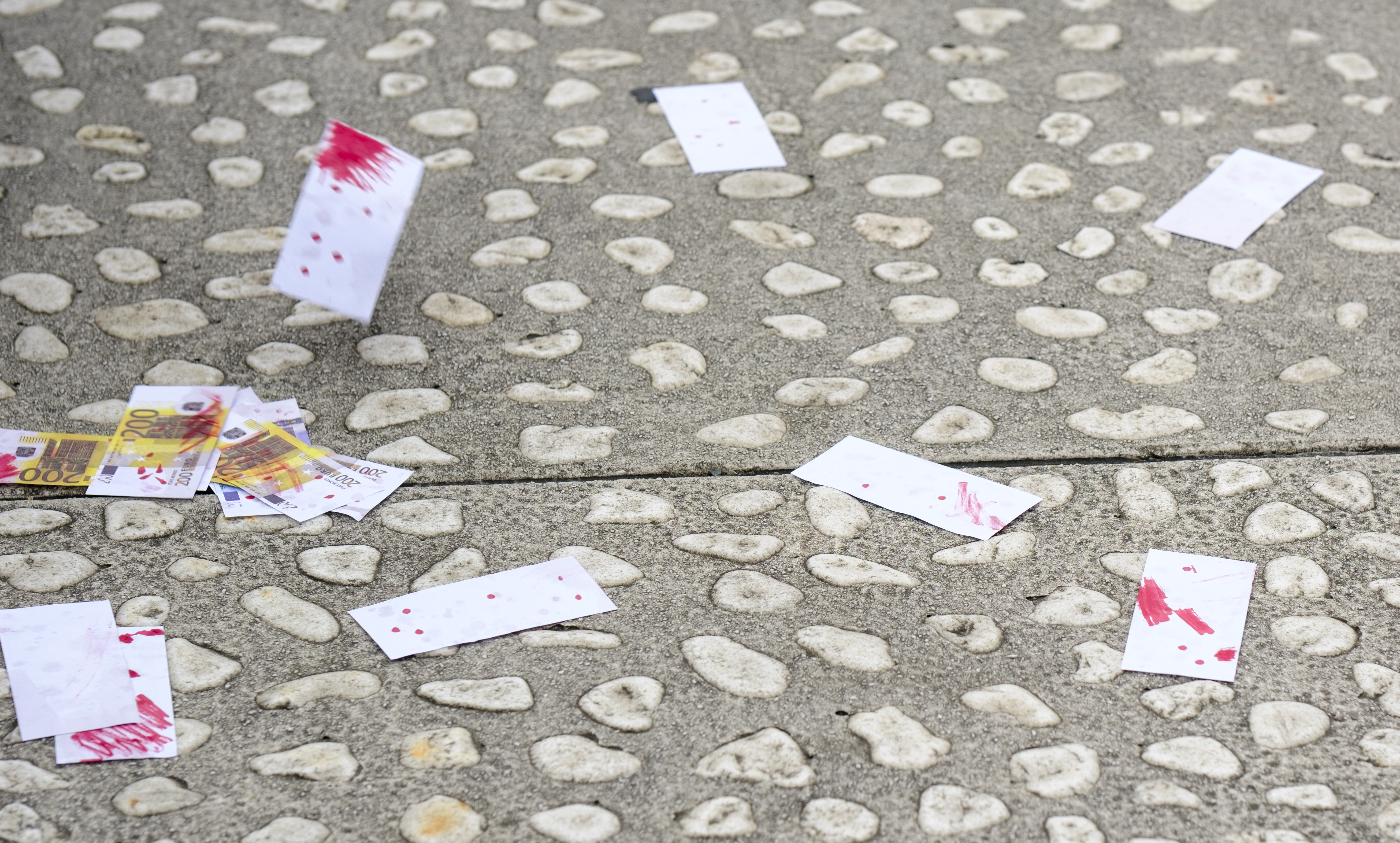Using Frozen Russian Assets for Ukraine's Reconstruction: Creating a Reparations Fund to Restore Justice

Frozen Russian assets can become a key source of reparations for Ukraine's reconstruction, turning the punishment of the aggressor into a tool of justice and deterrence of future wars
The prolonged war in Ukraine has caused staggering losses, and the costs of reconstruction are estimated at over 1 trillion dollars. Since Russia's aggression continues into 2025, Western countries are holding approximately 300 billion dollars in frozen Russian sovereign assets – primarily from the Russian Central Bank – confiscated in response to the invasion.
These assets, frozen in institutions such as Euroclear in Belgium, are a powerful tool for ensuring accountability. Instead of leaving them idle, proposals for their repurposing through a “reparations fund” or a loan mechanism could finance Ukraine's restoration, while simultaneously creating a global precedent of justice and deterring future acts of aggression, ensuring that aggressors bear the financial burden.
How the Mechanism for Repurposing Frozen Assets Can Operate
The main idea is to use the frozen assets not only as punishment but also as a direct source of reparations. The European Union, which holds the majority of these funds (about 185 billion euros), has proposed a “reparations loan” model. According to this plan, the EU will use the assets as collateral to provide Ukraine with a massive loan – potentially up to 50 billion euros per year – for military aid, infrastructure restoration, and humanitarian measures. The loan will be repaid only after Ukraine receives official reparations from Russia, which effectively transfers the repayment obligations to the aggressor state. This approach is based on existing measures under which the profits from the frozen assets (about 3-5 billion euros annually) are already being used to support Ukraine, but it strengthens the commitments by indirectly utilizing the principal amount.
Supporters argue that this is legally justified under international law, since Russia's aggressive war gives rise to obligations to provide full compensation for the damages caused. The G7 and the EU have synchronized their efforts: the United States in 2024 adopted the REPO Act, which allows for confiscation, and recent resolutions call for using these funds without any costs to taxpayers. By October 2025, discussions have gained momentum, and leaders such as former German Chancellor Olaf Scholz insist on unlocking access to funding for Ukraine beyond current budgets. Poland's Foreign Minister Radosław Sikorski predicts a “happy resolution” to this issue, which indicates growing consensus.
Is There a Connection to Sanctions Evasion and How Critical Is the Need for Decisive Action
Although sovereign assets remain largely secure, the tactics of sanctions evasion employed by Russian oligarchs underscore the urgency of decisive action regarding state funds. As mentioned earlier, oligarchs such as Andriy Melnychenko and Roman Abramovich have transferred assets to family members or used offshore trusts to circumvent personal sanctions, which has allowed them to continue receiving income that indirectly supports Russia's war machine. The effectiveness of sanctions evasion for some oligarchs is proven, as an example – Russian oligarch Melnychenko, who reduced his stake in “EuroChem” and SUEK to less than 50%, transferring control to his wife, which allowed exports to continue. Similarly, schemes involving shadow fleets, which currently number 940 tankers, allow bypassing oil price caps, bringing in billions despite environmental risks.
Such evasions highlight a key vulnerability: without repurposing the frozen state assets, sanctions risk becoming symbolic. By directing the frozen assets to a reparations fund, the West can counter such tactics, ensuring that Russia's collective resources, and not just individual oligarchs, finance the compensation.
Ensuring Justice for Future Victims of Aggression Is Extremely Important
In addition to providing immediate aid, the reparations fund will pioneer the creation of a mechanism for global justice. By formalizing the use of an aggressor's assets for compensating victims, it creates a deterrence model: future aggressor states will face not only military resistance but also swift economic retribution. This aligns with the principles of international law, under which reparations are mandatory for illegal wars, as confirmed by bodies such as the UN and the International Court. For example, the Global Fund for Victims of Violence advocates for extending such mechanisms to victims of conflict-related sexual violence, using Russian assets as a template for broader reparative justice.
In a multipolar world prone to conflicts, such as potential escalation in the South China Sea or the Middle East, this precedent could empower victim countries. It shifts the paradigm from reactive aid to proactive law enforcement, where frozen assets of aggressors fund restoration funds. As noted, strengthening sanctions on intermediaries (for example, crypto exchanges and re-export hubs in Central Asia) would complement these tools, making evasion of payment more expensive and enhancing the integrity of the fund.
There Are Quite Effective Responses to Existing Challenges
Critics warn of risks: Russia may take retaliatory measures by confiscating Western assets on its territory, valued at 300 billion dollars, or challenge these actions in court. Legal obstacles remain, as some consider direct confiscation a violation of sovereign immunity, although countermeasures such as the reparations loan allow bypassing this limitation by preserving Russia's nominal claims until the payment of reparations. Strengthening coordination between the EU and the US, as proposed by the U.S. Government Accountability Office regarding monitoring the shadow fleet, is necessary to mitigate these risks.
Ultimately, inaction contributes to the preservation of injustice. Creating the reparations fund now will not only accelerate Ukraine's restoration but also strengthen international norms, ensuring that the costs of aggression fall entirely on the perpetrator. As the war continues, the frozen billions become a moral imperative: it is necessary to transform Russia's dishonestly acquired reserves into a symbol of resilience and justice.
Danylo Yershov, political scientist specializing in international relations, junior expert at the United Ukraine Think Tank